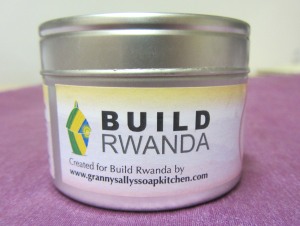Who is Paul Kagame?
Paul Kagame is the 6th president of Rwanda, many have claimed that he is the reason for Africas’ “biggest success story” (1) yet, he is a figure who draws greatly opposing views about his regime.
At first he was perceived to be a man to usher in a new harmonious era (2), Rwanda was said to be a top reformer of the world but this perception has been shattered due to suspicion of involvement with the M23 group (a rebel military group in the DRC.) (3)
In 2011 Paul Kagame was interviewed, within this he outlined his commitment towards the people of Rwanda and his vision of prosperity. He insisted that it was Rwandans primary responsibility to create a prosperous state. He also outlined how he had invested in health, education (there was 70% literacy rate, the highest in Africa) peace and stability for people to realise this vision. He went further insisting that in the last ten years Rwandas’ economy had been growing at 8%, therefore he was doing all he could for the wellbeing of his people. (4)
The Background to Paul Kagame’s Political Career
Paul Kagame was a child born to a Tutsi (aristocratic) family. The term “tutsi” had been applied during European census who applied a simple system to categorise and identify the people throughout Rwanda-Burundi. (5) Using ethnic affiliation in the 1920’s the terms Tutsi and Hutu were established. To be perceived as a Tutsi you had to either own more than ten cows or have certain physical features e.g a longer nose or a longer neck.
Tensions resulted from this segregation and escalated throughout the 1950’s which resulted in the Rwandan revolution where the Hutu militia began to kill the Tutsi forcing 100,000 to flee including Kagame’s family who fled to Uganda. During this time Paul Kagame began to integrate into Ugandan culture, although at first he was academically successful the death of his father lead to him hitting out at people who criticized the Rwandan population.
After his schooling he visited Rwanda twice. During these visits he kept a low profile as he believed that his status as a well connected exile could lead to his arrest. He used these visits as a way to re-familarise himself with the country and the social and political situation. He also made various connections which were invaluable to him later on in his political career. (6) – See Paul Kagame’s Political career next week.
Due to various circumstances Paul Kagame has been determined to bring his country back from the brink. He has provided many answers to difficult situations e.g Health insurance so that people can be treated and a fervent belief that his fellow countrymen will get themselves out of poverty “Rwandans have been insisting on taking control of their own affairs .” (7)
Despite all his achievements though throughout his Presidency many feel that Kagame has failed to resolve root issues, for example Tutsi and Hutus are still not reconciled to the present day. This being his main focus of his political agenda must be a bitter situation to acknowledge and is concealed by him stating that “…we are Banyarwanda [all Rwandans],” says the Rwandan observer. (8)
References
(1) CNN July 2007
(2) http://www.guardian.co.uk/commentisfree/2012/jul/26/rwanda-paul-kagame-problem
(3) Kigali Crafts, 14-07-2012
(4) http://www.cfr.org/rwanda/conversation-paul-kagame-video/p25220
(5) http://en.wikipedia.org/wiki/Tutsi
(6) http://en.wikipedia.org/wiki/Paul_Kagame
(8) Bbc news, Africa, Farouk Chothia, 10-12-2010
By Gemma Perry






